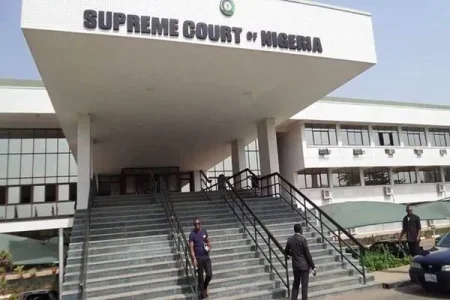
The Supreme Court has dismissed a lawsuit filed by Kogi and 18 other states challenging the establishment of the Economic and Financial Crimes Commission (EFCC). The court upheld the EFCC’s legality, citing Section 15(5) of the 1999 Constitution and reaffirming federal authority over anti-corruption efforts.
The Supreme Court has dismissed a high-profile case filed by Kogi State and joined by 18 others challenging the constitutionality of the Economic and Financial Crimes Commission (EFCC). The landmark ruling reaffirms the legality of the anti-graft agency, a key instrument in Nigeria's fight against corruption.
Filed as case SC/CV/178/2023, the suit argued that the EFCC lacked a clear constitutional basis for its establishment, alleging that it stemmed from a United Nations convention. However, the Attorney-General of the Federation (AGF), Lateef Fagbemi, countered that the EFCC’s establishment aligns with Section 15(5) of the 1999 Constitution, which mandates the abolition of corrupt practices and abuse of power.
Three of the original states—Anambra, Adamawa, and Ebonyi—later withdrew their participation, leaving 16 states to press the case. Fagbemi urged the court to dismiss the suit, warning that a ruling in the plaintiffs' favor could undermine anti-corruption efforts.
In its unanimous decision, the Supreme Court affirmed that the EFCC was lawfully created by an act of the National Assembly. It stated that the agency’s establishment was neither inconsistent with the Constitution nor required ratification by state legislatures.




